
Producer
In Marseille, Rosa, 60, dedicated her life to family and politics with the same sense of duty. Everyone considers her unwavering, until the day she falls in love with Henri. For the first time, Rosa is afraid to commit. Between the pressure of his family, politics and a desire to indulge in her feelings, the conflict is difficult to sustain.

Writer
In Marseille, Rosa, 60, dedicated her life to family and politics with the same sense of duty. Everyone considers her unwavering, until the day she falls in love with Henri. For the first time, Rosa is afraid to commit. Between the pressure of his family, politics and a desire to indulge in her feelings, the conflict is difficult to sustain.

Director
In Marseille, Rosa, 60, dedicated her life to family and politics with the same sense of duty. Everyone considers her unwavering, until the day she falls in love with Henri. For the first time, Rosa is afraid to commit. Between the pressure of his family, politics and a desire to indulge in her feelings, the conflict is difficult to sustain.
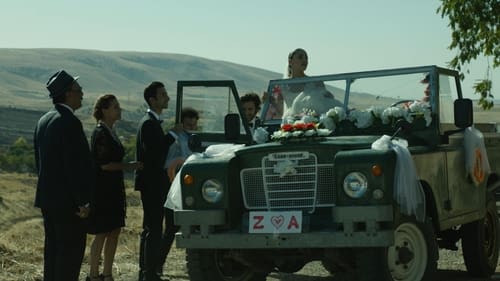
Producer
A young couple whose relationship is challenged when the husband is rendered impotent after being shot at the front.
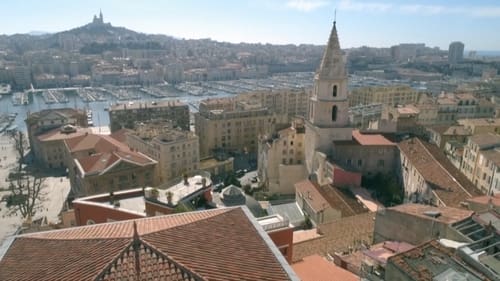
The heroine of this film is immortal. She is over 2600 years old. This is the self-portrait of the oldest city in France. A city whose landscapes bear the scars of a destiny that has spared it no trials. Gateway to the Orient, crossroads of trade and immigration, Marseille is a mosaic with 111 districts and 200 nationalities. Rebellious, chaotic, in turn desired, torn apart, transformed, it is reborn each time from its ashes. Marseille tells us more about the history of France and sheds light on what France is today.

Producer
Mali, 1960. The youth of Bamako dance the twist to rock and roll music newly imported from the West and dream of political renewal. Samba, a young socialist, falls for spirited Lara during one of his missions to the bush. To escape her forced marriage, she secretly flees with him to the city. But Lara’s husband won’t let them be and the Revolution soon brings painful disillusions as they dream of a future together.

Screenplay
Mali, 1960. The youth of Bamako dance the twist to rock and roll music newly imported from the West and dream of political renewal. Samba, a young socialist, falls for spirited Lara during one of his missions to the bush. To escape her forced marriage, she secretly flees with him to the city. But Lara’s husband won’t let them be and the Revolution soon brings painful disillusions as they dream of a future together.

Director
Mali, 1960. The youth of Bamako dance the twist to rock and roll music newly imported from the West and dream of political renewal. Samba, a young socialist, falls for spirited Lara during one of his missions to the bush. To escape her forced marriage, she secretly flees with him to the city. But Lara’s husband won’t let them be and the Revolution soon brings painful disillusions as they dream of a future together.

Producer
Etienne, an often out of work but endearing actor, runs a theater workshop in a prison, where he brings together an unlikely troupe of prisoners to stage Samuel Beckett’s famous play Waiting for Godot. When he is allowed to take the colorful band of convicts on a tour outside of prison, Etienne finally has the chance to thrive.
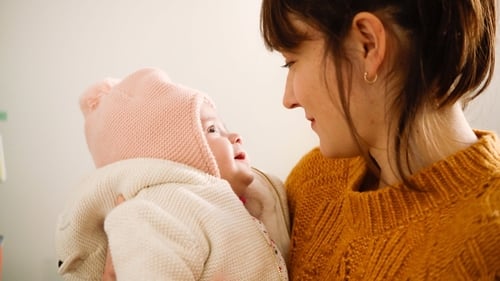
Screenplay
Daniel leaves prison. He returns to Marseilles where Mathilda, his daughter, has just given birth. Nicolas, her spouse, a self-employed driver, is exhausted while Mathilda is a sales assistant on a trial basis. But, one night, Nicolas is assaulted by taxi drivers determined to reduce unfair competition.

Director
Daniel leaves prison. He returns to Marseilles where Mathilda, his daughter, has just given birth. Nicolas, her spouse, a self-employed driver, is exhausted while Mathilda is a sales assistant on a trial basis. But, one night, Nicolas is assaulted by taxi drivers determined to reduce unfair competition.

Producer

Producer
By a little bay near Marseille lies a picturesque villa owned by an old man. His three children have gathered by his side for his last days. It’s time for them to weigh up what they have inherited of their father’s ideals and the community spirit he created in this magical place. The arrival, at a nearby cove, of a group of boat people will throw these moments of reflection into turmoil.

Screenplay
By a little bay near Marseille lies a picturesque villa owned by an old man. His three children have gathered by his side for his last days. It’s time for them to weigh up what they have inherited of their father’s ideals and the community spirit he created in this magical place. The arrival, at a nearby cove, of a group of boat people will throw these moments of reflection into turmoil.

Director
By a little bay near Marseille lies a picturesque villa owned by an old man. His three children have gathered by his side for his last days. It’s time for them to weigh up what they have inherited of their father’s ideals and the community spirit he created in this magical place. The arrival, at a nearby cove, of a group of boat people will throw these moments of reflection into turmoil.
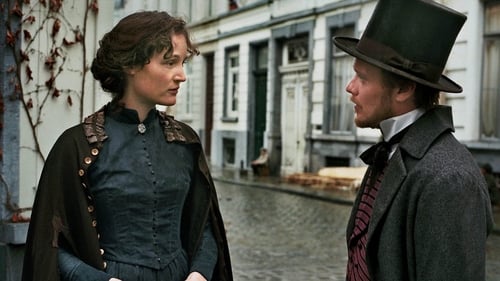
Producer
26 year-old Karl Marx embarks with his wife, Jenny, on the road to exile. In 1844 in Paris, he meets Friedrich Engels, an industrialist’s son, who has been investigating the sordid birth of the British working class. Engels, the dandy, provides the last piece of the puzzle to the young Karl Marx’s new vision of the world. Together, between censorship and the police’s repression, riots and political upheavals, they will lead the labor movement during its development into a modern era.
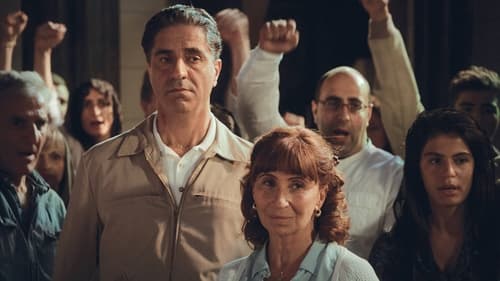
Writer
Aram, a young man from Marseille of Armenian origin, blows up the Turkish ambassador's car in Paris. Gilles, a young cyclist who was passing at that precise moment, is seriously injured. Aram's mother feels guilty and feels the need to visit Gilles at the hospital and beg for his forgiveness, something that Gilles does not understand. Against the advice of his comrades in Beirut, Aram decides to go meet his victim.

Director
Aram, a young man from Marseille of Armenian origin, blows up the Turkish ambassador's car in Paris. Gilles, a young cyclist who was passing at that precise moment, is seriously injured. Aram's mother feels guilty and feels the need to visit Gilles at the hospital and beg for his forgiveness, something that Gilles does not understand. Against the advice of his comrades in Beirut, Aram decides to go meet his victim.

Producer
Ariane is having her birthday party but no one comes. She decides to leave at the seaside and take part with her life that disappointed her.

Writer
Ariane is having her birthday party but no one comes. She decides to leave at the seaside and take part with her life that disappointed her.

Director
Ariane is having her birthday party but no one comes. She decides to leave at the seaside and take part with her life that disappointed her.

Producer
Baran, a war hero, becomes sheriff of the capital and refuses to bow down to a tribal chief.
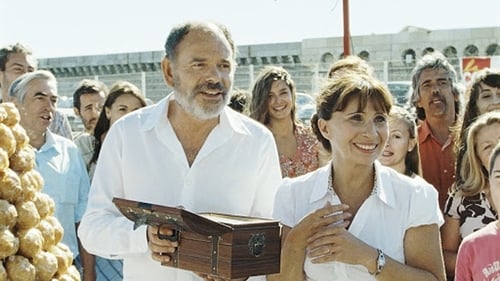
Director
A union pensioner and his wife are robbed, but find that merely getting the assailants brought to justice is not enough for their consciences.

Screenplay
A union pensioner and his wife are robbed, but find that merely getting the assailants brought to justice is not enough for their consciences.

Producer
Lyon, France in 1970s, Sibylle, Corinne, and Georgette are sisters who share everything, as they live with their Italian mother. Sibylle is the only blonde in the family, except for their father who abandoned them, and she feels isolated. She dreams of meeting her French father one day.
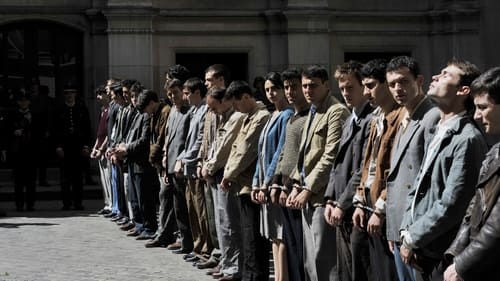
Scenario Writer
This gripping historical drama recounts the story of Armenian-born Missak Manouchian, a woodworker and political activist who led an immigrant laborer division of the Parisian Resistance on 30 operations against the Nazis in 1943. The Nazis branded the group an Army of Crime, an anti-immigrant propaganda stunt that backfired as the team's members became martyrs for the Resistance.

Director
This gripping historical drama recounts the story of Armenian-born Missak Manouchian, a woodworker and political activist who led an immigrant laborer division of the Parisian Resistance on 30 operations against the Nazis in 1943. The Nazis branded the group an Army of Crime, an anti-immigrant propaganda stunt that backfired as the team's members became martyrs for the Resistance.

Director
Centers on three childhood friends: Muriel, Francois and Rene. Partners in crime (burglaries, to be precise), the three end their "criminal" activities after one of their attempted burglaries fails. They vow never to see each other again until, however, Muriel's son is kidnapped, which leads the three to join forces again to get the ransom money.

Writer
Centers on three childhood friends: Muriel, Francois and Rene. Partners in crime (burglaries, to be precise), the three end their "criminal" activities after one of their attempted burglaries fails. They vow never to see each other again until, however, Muriel's son is kidnapped, which leads the three to join forces again to get the ransom money.

Producer
It’s summer and the beginning of the long vacation period for eleven-year-old Martin, who lives on a farm, and, at a loss, observes his family’s disintegration : his mother lives locked-up in her room ; his older brother, who he adores, drowns himself in drink ; and his father, dominated by Martin’s grandmother, is a helpless onlooker to the family’s collapse. Although Mistigri, his cat, and Malika, the Moroccan maid, afford him some comfort, Martin is determined to put an end to this confusion.

Writer
This is a story about returning to ones ancestral homeland. Anna is a cardiologist who discovers her father has fled to his native Armenia after being diagnosed with a heart problem. Despite their contentious relationship, she sets out to bring her father back for this operation. Anna is a tough-minded, headstrong woman with little feeling for her fathers homeland or patience with its politics and socially intrusive culture, yet she finds this journey not only a reunion of sorts, but one of reconciliation as well.

Director
This is a story about returning to ones ancestral homeland. Anna is a cardiologist who discovers her father has fled to his native Armenia after being diagnosed with a heart problem. Despite their contentious relationship, she sets out to bring her father back for this operation. Anna is a tough-minded, headstrong woman with little feeling for her fathers homeland or patience with its politics and socially intrusive culture, yet she finds this journey not only a reunion of sorts, but one of reconciliation as well.

Producer
Crustacés et coquillages is a fresh French comedy film with numerous surprise turnarounds and about the tolerance of a family of four. The family spend an idealistic summer vacation together where each of the family members gets involved in a new or old relationship.

Director
A young journalist (Lespert) helps the French President compile his memoirs.

Director
Her parents and a former lover try to help a woman out of an apparently unjustified catatonic condition.

Self
For over twenty years, Robert Guédiguian has been making films that occupy an essential place in French cinema. In film after film, he evokes the social chronicle of his working-class childhood. We witness an adventure rich in reflections on the film director’s profession, political commitment, the intimate relation between real and fictional characters, and a shared desire to create.
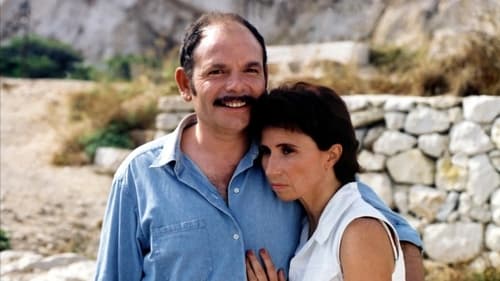
Writer
Marie-Jo and Her Two Lovers (French: Marie-Jo et ses deux amours) is a 2002 French drama film directed by Robert Guédiguian. It was entered into the 2002 Cannes Film Festival.

Producer
Marie-Jo and Her Two Lovers (French: Marie-Jo et ses deux amours) is a 2002 French drama film directed by Robert Guédiguian. It was entered into the 2002 Cannes Film Festival.

Director
Marie-Jo and Her Two Lovers (French: Marie-Jo et ses deux amours) is a 2002 French drama film directed by Robert Guédiguian. It was entered into the 2002 Cannes Film Festival.

Producer
A dark tale of working-class life in Marseilles, a city in crisis. Interesting characters include a hard-bitten but compassionate fish market worker with a drug addicted daughter and a moody bartender with a shocking secret life.

Screenplay
A dark tale of working-class life in Marseilles, a city in crisis. Interesting characters include a hard-bitten but compassionate fish market worker with a drug addicted daughter and a moody bartender with a shocking secret life.

Director
A dark tale of working-class life in Marseilles, a city in crisis. Interesting characters include a hard-bitten but compassionate fish market worker with a drug addicted daughter and a moody bartender with a shocking secret life.

Director
Two friends with very different personalities decide to write a script for a movie. Their discussions and confrontations are constant, but the story slowly takes shape around a poor family that has a small car repair business. Times are hard and will have to fight to prevent a multinational tear down the garage.

Writer
From the director of Marius et Jeannette, this story of two working-class families is a fable with an optimist streak. A young black man, Francois, is wrongly accused of rape by a racist policeman. The story is told in voiceover by his childhood friend, neighbor, and the mother of his future child, Clementine, who is white. The city is Marseilles as in the previous film, symbolic with its churches, prisons and ruins. Except in this film, director Robert Guediguian also ventures outside, taking the story to Sarajevo; two different cities, one devastated by war, the other by a bad economy and unemployment. A la Place du coeur won a Special Jury Prize at the 1998 San Sebastian Film Festival and was also shown at the 1998 Toronto Film Festival and the 1998 Montreal Film Festival.

Director
From the director of Marius et Jeannette, this story of two working-class families is a fable with an optimist streak. A young black man, Francois, is wrongly accused of rape by a racist policeman. The story is told in voiceover by his childhood friend, neighbor, and the mother of his future child, Clementine, who is white. The city is Marseilles as in the previous film, symbolic with its churches, prisons and ruins. Except in this film, director Robert Guediguian also ventures outside, taking the story to Sarajevo; two different cities, one devastated by war, the other by a bad economy and unemployment. A la Place du coeur won a Special Jury Prize at the 1998 San Sebastian Film Festival and was also shown at the 1998 Toronto Film Festival and the 1998 Montreal Film Festival.
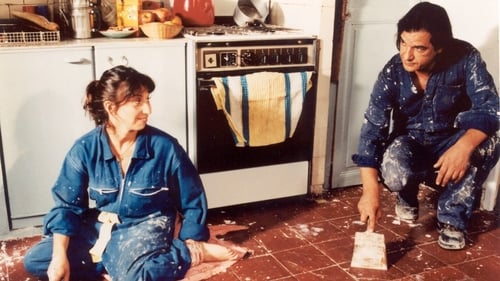
Producer
Jeannette is a single mother living in a working-class community in Marseilles; she tries to support herself and her two kids on her salary as a check-out girl at a supermarket and lives in an apartment complex where everyone is thrown into close proximity with everyone else. Marius is working as a security guard at a cement factory that has gone out of business; he's also squatting in the building, since the plant is soon to be demolished and he'll be needing his money later on. One day, Jeannette happens by the factory, and spotting several cans of paint, tries to take two of them home with her. Marius spots her and tries to chase her away, while she rails at him with curses against the capitalist system. The next day, an apologetic Marius appears at her doorstep, cans of paint in hand; the two soon become friendly, and a romance begins to bloom, though it quickly becomes obvious that Jeannette's romance novel fantasies are a bit off the mark from what Marius has in mind.

Narrateur (voice) (uncredited)
Jeannette is a single mother living in a working-class community in Marseilles; she tries to support herself and her two kids on her salary as a check-out girl at a supermarket and lives in an apartment complex where everyone is thrown into close proximity with everyone else. Marius is working as a security guard at a cement factory that has gone out of business; he's also squatting in the building, since the plant is soon to be demolished and he'll be needing his money later on. One day, Jeannette happens by the factory, and spotting several cans of paint, tries to take two of them home with her. Marius spots her and tries to chase her away, while she rails at him with curses against the capitalist system. The next day, an apologetic Marius appears at her doorstep, cans of paint in hand; the two soon become friendly, and a romance begins to bloom, though it quickly becomes obvious that Jeannette's romance novel fantasies are a bit off the mark from what Marius has in mind.

Dialogue
Jeannette is a single mother living in a working-class community in Marseilles; she tries to support herself and her two kids on her salary as a check-out girl at a supermarket and lives in an apartment complex where everyone is thrown into close proximity with everyone else. Marius is working as a security guard at a cement factory that has gone out of business; he's also squatting in the building, since the plant is soon to be demolished and he'll be needing his money later on. One day, Jeannette happens by the factory, and spotting several cans of paint, tries to take two of them home with her. Marius spots her and tries to chase her away, while she rails at him with curses against the capitalist system. The next day, an apologetic Marius appears at her doorstep, cans of paint in hand; the two soon become friendly, and a romance begins to bloom, though it quickly becomes obvious that Jeannette's romance novel fantasies are a bit off the mark from what Marius has in mind.

Screenplay
Jeannette is a single mother living in a working-class community in Marseilles; she tries to support herself and her two kids on her salary as a check-out girl at a supermarket and lives in an apartment complex where everyone is thrown into close proximity with everyone else. Marius is working as a security guard at a cement factory that has gone out of business; he's also squatting in the building, since the plant is soon to be demolished and he'll be needing his money later on. One day, Jeannette happens by the factory, and spotting several cans of paint, tries to take two of them home with her. Marius spots her and tries to chase her away, while she rails at him with curses against the capitalist system. The next day, an apologetic Marius appears at her doorstep, cans of paint in hand; the two soon become friendly, and a romance begins to bloom, though it quickly becomes obvious that Jeannette's romance novel fantasies are a bit off the mark from what Marius has in mind.

Director
Jeannette is a single mother living in a working-class community in Marseilles; she tries to support herself and her two kids on her salary as a check-out girl at a supermarket and lives in an apartment complex where everyone is thrown into close proximity with everyone else. Marius is working as a security guard at a cement factory that has gone out of business; he's also squatting in the building, since the plant is soon to be demolished and he'll be needing his money later on. One day, Jeannette happens by the factory, and spotting several cans of paint, tries to take two of them home with her. Marius spots her and tries to chase her away, while she rails at him with curses against the capitalist system. The next day, an apologetic Marius appears at her doorstep, cans of paint in hand; the two soon become friendly, and a romance begins to bloom, though it quickly becomes obvious that Jeannette's romance novel fantasies are a bit off the mark from what Marius has in mind.

Director
À la vie, à la mort ! (1995) In Estaque, a northern suburb of Marseilles, stuck between oil refinery smokestacks and the Mediterranean sea, a handful of die-hards has taken refuge in a cabaret. There is José, the owner, a big-hearted gypsy who loves cars and women's bodies; Joséfa, his wife, the establishment's stripper despite her advanced years and Marie-Sol who climbs the hill every day to visit Notre-Dame de la Garde and beseech Virgin Mary to give her a child. There is Patrick, her husband who has been unemployed for ages but who is kind despite appearances and their friend Jaco who is having a hard time. His wife and daughters hate him for not keeping up on the mortgage repayments. Last but not least is Papa Carlossa who believes that Franco still rules Spain and fantasizes about bumping him off.

Director
How the mothers of a deprived suburb of Marseille will create a solidarity committee under the aegis of the parish priest. Gathered in assembly, they will invent a solution to the endemic misery of their city.

Director
Three men and a woman from a city in the south of France made a pact as teenagers to never forget that they were children of the poor.

Producer
Al and Elsa have been a couple for some time, but the chances that their relationship will be long-lived are few. For one thing, Al is appallingly dependent on Elsa for his every emotional need. For another, Elsa is an incredibly elusive person, extremely difficult to pin down about anything - especially whatever is bothering her. How they have managed to survive this long is a cause for wonder. When Al gets an opportunity to be cast in a movie role, complete with no-cost occupancy in the casting agent's ugly but fashionable apartment, he jumps at the chance to provide a little material satisfaction for his beloved Elsa. But what exactly does she want?

Director

Writer
A group of children from the same neighborhood meet a few years later. When the day comes, they meet again and take stock of their lives.

Director
A group of children from the same neighborhood meet a few years later. When the day comes, they meet again and take stock of their lives.

Director
Gilbert, his brother Boule and some friends live in Estaque. Between carelessness, petty theft and social gloom, they feel like the outcasts of a society where Gilbert has no future. This is the "last summer" that he intends to spend there, dragging his idleness, nevertheless beginning a romance with Josiane, a nice worker.
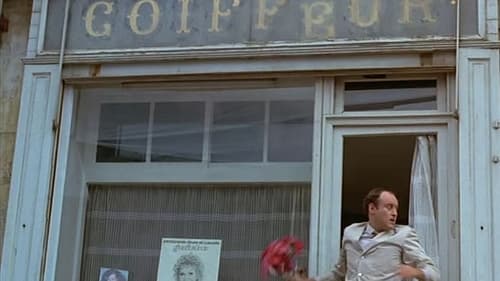
Scenario Writer
Everybody takes advantage of Fernand who has just come out of prison.

Producer
Maria, who's not as young as she used to be and who helps people older than her, is living from hand to mouth. She can't quite accept her precarious situation and steals a few euros here and there from all those lovely people she looks after with such devotion, and who adore her for it… But after an accusation of abuse of a vulnerable person, Maria winds up in police custody.

Writer
Maria, who's not as young as she used to be and who helps people older than her, is living from hand to mouth. She can't quite accept her precarious situation and steals a few euros here and there from all those lovely people she looks after with such devotion, and who adore her for it… But after an accusation of abuse of a vulnerable person, Maria winds up in police custody.

Director
Maria, who's not as young as she used to be and who helps people older than her, is living from hand to mouth. She can't quite accept her precarious situation and steals a few euros here and there from all those lovely people she looks after with such devotion, and who adore her for it… But after an accusation of abuse of a vulnerable person, Maria winds up in police custody.

























































